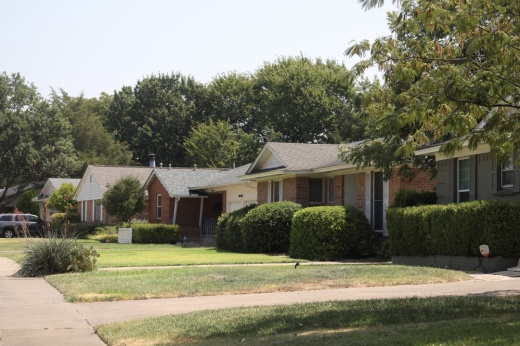In early August, City Manager T.C. Broadnax proposed a $4.63 billion city budget for FY 2023-24, with a general fund budget of $1.84 billion and a property tax decrease of a little more than half a cent. City Council is expected to vote on a maximum tax rate for the budget Aug. 23.
What happened
On Aug. 18, Johnson requested Broadnax revise his original city budget proposal to provide additional property tax relief. The proposal included lowering the tax rate from $0.7458 to $0.7393 per $100 valuation.
The $0.0065 rate reduction would still result in a tax increase for most Dallas property owners because certified property value growth is estimated at 10.5% more than FY 2022-23, according to an Aug. 17 memo from City Council Member Cara Mendelsohn, who urged Johnson to challenge the budget proposal. The combined low rate reduction and property value growth would generate enough revenue to lead to the largest city of Dallas budget in history, according to the memo.
Notable quote
“We have an opportunity with this new city budget to ... begin alleviating Dallas residents’ unsustainable property tax burden and to halt the expansion in size of our ever-growing city government,” Johnson said in an Aug. 20 newsletter. “It is both necessary and doable to deliver city services more efficiently and to reduce city government spending starting now.”
The details
In her memo, Mendelsohn suggested using a no-new-revenue rate, which would lead to tax bills that look the same or lower than FY 2022-23 for residents and businesses. To do so, she suggested several methods, including:
- Removing “ghost” full-time equivalent positions, which are positions that have been open more than nine months or have little chance of being filled this fiscal year, from the budget
- Reseting each department’s total budget to the same dollar amount included in the FY 2022-23 year, minus any one-time funding expenses and ghost full-time equivalent positions, unless the department has grown by more than 50% in the last five years
- Removing city funding for programs that are the domain of the county, state, federal government or transit agency
Some context
Lowering property taxes is one of Johnson’s top priorities as mayor. In June, he said he wants Dallas to have the lowest property tax rate of any major city in the region, which he added would enable more people to live and work in the city.
Get involved
City Council is hosting a public hearing to gather community input on the FY 2023-24 budget during their Aug. 23 meeting at City Hall. The hearing will be held no earlier than 1 p.m., depending on how long City Council’s meeting lasts.
To speak at the hearing, community members can register in person at City Hall, online through the city’s website, by emailing [email protected] or by calling 214-670-3738. The deadline to register is Aug. 22 at 5 p.m.
What’s next
Broadnax was instructed to submit an updated budget proposal no later than Sept. 1 at 5 p.m., according to an Aug. 18 memo from Johnson. City Council will discuss the new proposal during a Sept. 6 budget workshop.
City Council is expected to adopt the final budget in late September. The budget goes into effect Oct. 1 and ends Sept. 30, 2024.





